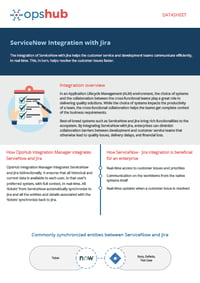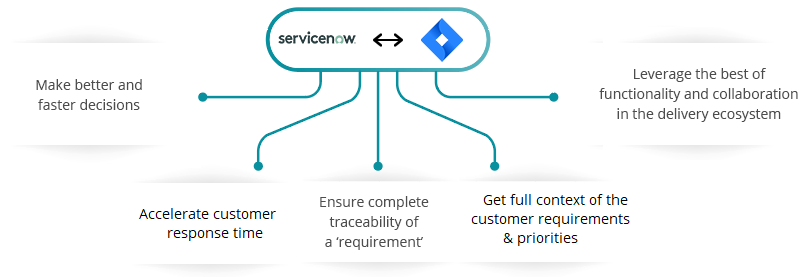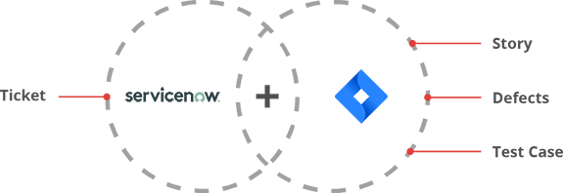

The integration of Jira with ServiceNow helps the customer service and development teams communicate efficiently, in real-time. This, in turn, helps resolve the customer issues faster.
In an Application Lifecycle Management (ALM) environment, the choice of systems and the collaboration between the cross-functional teams play a great role in delivering quality solutions. While the choice of systems impacts the productivity of a team, the cross-functional collaboration helps the teams get complete context of the business requirements.
Best-of-breed systems such as Jira and ServiceNow bring rich functionalities to the ecosystem. By integrating Jira with ServiceNow, enterprises can diminish collaboration barriers between development and customer service teams that otherwise lead to quality issues, delivery delays, and financial loss.

OpsHub Integration Manager integrates Jira and ServiceNow bidirectionally. It ensures that all historical and current data is available to each user, in that user’s preferred system, with full context, in real-time. All ‘tickets’ from ServiceNow automatically synchronize to Jira and all the entities and details associated with the ‘tickets’ synchronize back to Jira.

Problem statement: The support team receives a ticket from a customer, which it identifies as a ‘defect’, and sends to the development team for resolution. The development team responds that the ‘identified defect’ is a ‘known defect’, and is in process of resolution before the next release.
Solution: When Jira and ServiceNow are bi-directionally integrated using OpsHub Integration Manager, the status of this defect would have already synchronized to ‘ServiceNow’ as ‘In Progress’ along with the expected resolution date. The response to customer could have been faster.
